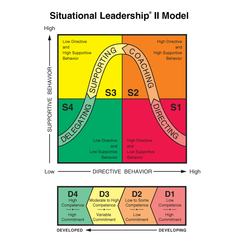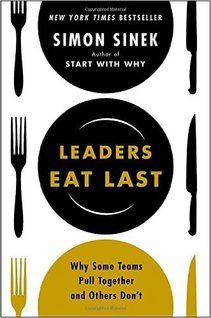 A few weeks ago I was sitting in a doctor's office answering questions about how I was feeling. The questions were part of the process for the doctor to figure out what was going on with me. Individually, the symptoms weren't a huge deal, but taken together they provide a picture of what's happening. In ministry we need to regularly ask ourselves diagnostic questions about our leadership, especially when it feels like we're on the roller coaster of ups and downs. Those times, with their uncertainty and unpredictability, can be debilitating for us unless we dig into the issues. So here are 7 diagnostic questions to regularly ask yourself in ministry, but to really look at on the rough days. 1. Is your personal spiritual life growing, regular, consistent, and engaging? - In ministry we're only able to give to others what we're getting ourselves. That starts by the regular practice of spiritual disciplines, the practices we do to engage our faith. If your time in the Word isn't charging your heart, if your time in prayer isn't shaping you to be like Jesus, and if you're not regularly fasting, serving, giving, witnessing, and sharing hospitality, it's no wonder your ministry leadership feels dry. You're running on an empty tank. 2. When was the last time you dreamed? - Daydreaming is a waste of time, that's pretending you're high-fiving Lebron James when your name gets called as an NBA starter. Start practicing your jumper or start studying for that Physics test. But dreams are a whole other thing. Dreams are where the energy for our effort comes from. Dreams are where we picture an ideal future of what we want our lives and ministries to look like. Sleep studies have shown if we don't dream, we can really hurt ourselves. Are you dreaming of what your ministry could look like? Or are you content to just let things continue? 3. Is your marriage and family life balanced and healthy? - The downfall for far too many pastors who burn out or disqualify themselves happens not in the pulpit but in their home. Are you engaged with your kids or distracted by your phone? Are you involved in their lives reading bedtime stories or attending games? Do you date your wife? Are you regularly intimate (physically and emotionally)? Satan will attack your home before he attacks your church (cf. Mark 3:27), so take an assessment and see if things are strong? 4. When was the last time God answered a prayer? - James tells us we have not because we ask not (James 4:2-3) and sometimes I think that happens when we stop praying expectantly. If it's been a while since you can remember God specifically answering a prayer, check to see if your prayer life is vibrant or perfunctory. Are you praying to seek God's face and plead with Him, or are you running through your church's sick list? 5. Can you name who's shaping you and who you're shaping? - I'm a huge fan of mentoring, both to have someone shaping your life but also for you to shape someone else's. One of the best uses of a leader's time is spending time investing in another leader--that multiplies your influence. If you shape someone and are being shaped, you're constantly sharpening yourself. If your ministry influence isn't being replicated in others, you're not developing a culture of leaders, you're creating a dependency. 6. Are you reading something right now? - Ministry leaders fill their offices with books, a lot of it comes from spending 3-8 years in intensive study in seminary (especially if you're crazy enough to go for a doctorate!). But when a ministry leader doesn't have to read for class anymore, many times they fall into a trap of not regularly reading anymore. Harry Truman made it clear when he said "leaders are readers" because if you're not growing and expanding yourself as a leader, you're on your way to turning into a Dead Sea. Check out the book Lit!: A Christian Guide to Reading Books for more on sharpening yourself as a reader. Also, don't be scared to read outside of your tribe. I've gleaned so much from secular leadership books, there's so much to take from them that are observable principles of working with people. 7. Can you remember the last time you depended on faith to do something? - One thing I've learned in almost a decade of ministry is that we are trained to be risk-aversive. Risk isn't always good or wise, sometimes when we think we're taking a risk to accomplish something we're actually being stupid. But our risk aversion means that more often than not, we're not depending on faith to get anything done. We're so good at "counting the cost" that we forget to look to the Lord of the harvest. If you can't remember the last time you needed to depend on faith for something, maybe you've been depending on yourself and your ability more than God's. Take a step back and look for a BHAG that only God can accomplish, get wise counsel, and after much prayer take a leap of faith. Watch how God provides, protects, and works through you.
2 Comments
Yesterday began the highest of holiday weeks for the Christian calendar with Palm Sunday. During this week, called Passion Week, Holy Week, or if you're Baptist "Easter Week," our attention turns to the culmination of Jesus' life and ministry, His victorious death and resurrection. The special nature of this week causes us to reflect on Jesus' work in our own lives, and we remember the sacrifice on Calvary that was necessary to pay our sin debt. And the great news is that because Jesus' death was enough to cover our sin means we don't have to live with guilt and shame.
Families have the great opportunity to use this week to make a lasting impact on not only their own families but their communities and the world. Here are seven ways how: 1) Make the commitment to have family devotions this week - Use your dinnertime as a time to spend time in the Word, praying, and having a spiritual conversation. It doesn't have to be anything formal or scripted, but it does have to be intentional. Spiritual conversations can be about what they're doing at church, how God is working in their lives, and a chance for parents to encourage their kids. Maybe read through John 13-20, which gives a full account of the Last Supper, the arrest/trial of Jesus, and the crucifixion & resurrection. If your kids are younger, you can use the Jesus Storybook Bible and its stories on pages 286-317. 2) Go through your stuff and give it away - If your church or community has a clothing ministry to needy families, this week can give you a great time to clean out your closet. If you can't remember the last time you wore it, give it away. Those jeans you used to fit in before you discovered the candy stash? Give those away too. Bless your neighbors with the things that you don't need anymore. 3) Collect money and give to the Annie Armstrong Offering - Every year at Easter, SBC churches around the country collect money for church planters and missionaries in North America (US & Canada). There are hundreds of Kingdom workers around the country who are serving in major cities making Gospel impact, and the Annie Armstrong offering is a chance to bless them and their work. You can give through your church or directly through the Annie Armstrong website. 4) Share the Gospel with your kids - One of the most profound things about being a parent is that when we look at our kids, we not only see our pride and joy, but we also see a prospective brother or sister in Christ. If your kids haven't made a profession of faith yet and are old enough to understand (check out this article from John MacArthur on the "age of accountability"), be intentional this week about sharing the Gospel with them, and point out their need for a Savior. You can get more help from Focus on the Family, David Platt, Centri-Kid, Source for Youth Ministry, and LifeWay Students. 5) Serve a widow(er) or senior adult in your church - There are lots of senior saints in our churches who are experiencing a special season without their spouse, or who are dealing with the loneliness of old age. Your family can bless them by visiting them, spending time with them, sharing a gift, and reminding them of their great hope in the Living Christ. If you need help finding a senior adult to spend time with, talk to your church leadership or deacons. 6) Do a mission project as a family - This doesn't have to be a big production, it can be an evening volunteering at a soup kitchen or homeless shelter. Your family can be a part of blessing and serving alongside a Gospel-focused ministry this week. Doing this as a family and letting your kids see you serving can show them the joy of missions and help them to learn to love serving Christ. 7) Intentionally invite someone to church on Sunday - Easter Sunday is one of the biggest days for guests in churches. We see lots of people who come to church because it's Easter. Why not intentionally invite your neighbor, your coworker, your kid's soccer coach, or your babysitter to church on Sunday? Intentionally inviting them is more than asking them to come, it's engaging them throughout the service (especially if they don't understand Christian-ese), it's asking them their thoughts, and asking if the Gospel presentation made sense to them. Families, what suggestions would you have for this list?  There are few things less fun than being laid up in bed for almost a week with a high fever, chills, body aches, and then to cap it off pneumonia. My dear wife took great care of me, my coworkers were totally understanding, and I was able to call on a trusted volunteer to fill in for me on short notice. Being laid up that long can teach us a lot about leadership, and I think there's six lessons we can learn from the sick bay: 1. You're not nearly as important as you think you are - Perhaps the most obvious, the world will move on if you're not there. This is a healthy reminder for all of us control freaks, things will still happen if we're not there to make sure they do. Whenever a leader feels their importance > their calling, they've lost sight of what really matters. 2. A leader needs to raise other leaders - If no one else can do what you do, you're not being a leader, you're being an isolationist. Leaders need to raise up other leaders who can carry on the mantle (see #1). That's why it's always important to make sure you've got a handful of people who can carry on whatever ministry you're leading if you're not there. That starts way before you're out sick, by investing in a core group of folks who have ownership stake in the ministry, who know the vision, who live by the core values, and who can lead and do with minimal oversight. 3. Life still happens, so you need to prepare - One reason I prep ahead of time for our ministry activities is if something happens to me and I need someone else to take over. That way they've got the shell in place and can run with it. Last week hit me like a truck and I had to ask my intern to start from scratch, but normally there's a plan in place. Each week Sunday and Wednesday come around without fail, so preparing as a leader means making sure everything is in place so that whoever leads it isn't important. It won't go exactly like you planned if you're not there, but that's where #4 comes in. 4. Leaders have to trust others - One of the most important things a leader can do is delegate. Delegation is the final step in the preparation and training process, where you have given everything you can to someone and now they are empowered and entrusted to go and serve. It requires a high level of trust because while there's oversight there's not nearly the management in earlier stages. But a leader has to trust others because by delegating authority and responsibility, a leader is able to multiply their influence throughout a ministry or organization. 5. Leaders need to take care of themselves - A leader's personal, emotional, and spiritual health is essential because if a leader fails in one of those, the ripple effects are felt everywhere. Laying in bed for a week was a reminder for me to eat better, exercise, and rest. Hitting the grinder non-stop for weeks had finally caught up to me and my body said "ENOUGH!" That wasn't a season of productivity for me, it was a season of leadership failure. 6. Leaders need to have an exit strategy - No leadership position is a permanent one, we're all interim in one sense or another. Leaders of any ministry need to have an exit strategy in place, and being sick for an extended period is a great example. An exit strategy involves identifying 3-4 people who can temporarily carry on the workload of leading the ministry, instilling a set of core values that help shape decisions, and communicating to stakeholders the culture of the ministry. Those three things are essential in order to keep things from descending into chaos. Many times ministries are not only led but centered around one person. So when that one person leaves, there's a vacuum of leadership, strategy, and direction. Developing an exit strategy and keeping those three things in place will help make any transition a healthy one.  Last night while taking our students through Ruth, we came across the passage in 4:1-12 where Boaz meets with the Redeemer to find out if he will marry Ruth or if the other man will. As I was prepping for the lesson, I was struck by the example of manhood that Boaz displayed in this. And as the preparation matured, it became obvious that last night was a call for manhood to our guys. The starting place for spiritual leadership in the church and home isn't age, experience, degrees, or whether or not you can shave. It's being a man. Being a godly man means being responsible and being committed. Responsibility is when you as a man own up to your faith, yourself, and you're willing to be accountable for what you do. Responsibility is lacking when too many "adults" want to pass the blame higher up the chain, rather than own it. It happens when someone becomes a father but fails to be a dad. I see this so often in student ministry where the dad is too consumed with himself, video games, a bigger truck, or chasing after his hobbies that he fails to do the task God gave him: cultivate the ground (work hard) and be fruitful (be a husband and dad). Boaz took on responsibility he didn't have to, but he willingly took on. That's what Christ has done for us. Romans 5 reminds us that Christ died for us while we were still His enemies. Being a man is being radical. And being radical today means spending time in your Bible, working hard, building a family, investing in your wife and kids, mowing your yard, and serving your church. A godly man is committed because his effort isn't based on convenience or what he can get out of it. Rather, it's a matter of integrity for him to finish what he started. Sadly that doesn't happen everyday when men walk away from their wife and kids because they're not "happy" anymore. Or when a man walks away from his role as provider and protector to "chase his dreams." Too many men today are like kids signing up for baseball or getting a puppy, it sounds great at first and there's initial excitement, but once the reality sets in they try to find a way out. To be the spiritual leader in a church, or more importantly in your home, requires that you make the firm commitment that you will see your task through. Fellas, that means you don't get to claim "Me time" because when your job obligations are done, your wife and kids need you to be Husband and Dad with them. Being a man means sacrifice, service, and generosity. That's what separates a godly man from a guy.  The best way to tell if a leader is truly invested in their people is to look at what happens when they get to a buffet line. Does the leader push his way to the front or does he let others go ahead of him? What about their place in the line? Are they content with being in the middle or are they willing to go all the way to the back, and in the process get the cold leftovers and pimento cheese? That's the big question Sinek poses in the book Leaders Eat Last, which he observed while watching a Marine Corps meal--the officers waited until all the enlisted men had gone through to eat before they did. The message behind it was clear: the goal of a leader is to make sure those under their care are taken care of first. You can check out a really helpful review of the book here, and even though Sinek isn't writing from a Christian worldview, his book has several implications for Christ-like leadership. Sinek's major arguments come from a naturalistic worldview that looks at sacrificial leadership as a survival instinct, and points out the physiology of our body chemicals (Serotonin, Dopamine, Endorphins, and Oxytocin) and their role in shaping our social bonds and personal interactions. As believers, we recognize that our body chemistry and social interactions are part of God's design and what makes us unique as His image-bearers. 1. Christian leaders can set the thermostat - Leaders have the ability to shape the culture and environment they lead in. If a leader is poised, composed, and strategic, the environment is much less chaotic than a leader who lives by a "crisis of the week" mentality. Never underestimate how much people are looking to you as a leader, they will feed off your cues, both spoken and unspoken. 2. Christian leaders lead by sacrificial service - Jesus models this for us, and Paul shares in Philippians 2 the sacrificial servanthood of Christ, who emptied Himself to the point of a servant and died in our place on the cross. As leaders, we do not lead by barking orders from the back, we lead from the front. I remember one mission trip watching a youth pastor sitting under an umbrella telling his students what to do on a construction project. If you want to lead, be willing to work harder, longer, and right there with your people. 3. Christian leaders recognize the needs of others - When we lead, we're not setting our agenda, we're serving and meeting the needs of those around us. That's why we need to be flexible with how we build our time. The desperate man whose wife just left him can't wait for you to finish your sermon prep to talk, your response as a leader is to respond to the immediate needs. It's also important to make sure the long-range needs are met, which means your agenda as a leader becomes their agenda. 4. Christian leaders need to have the big picture in mind - Leadership isn't doing what Jack Welch at GE did, which was create a spirit of fear among managers and a roller coaster of performance. It instead looks like Costco, that recognizes the value of employees and making sure they can thrive at work by thriving at home. It's what I love about Southwest Airlines, their primary focus is their employees, because they know if they take care of their people they will take care of the customers. As a Christian leader, we need to keep the big picture in mind, looking ahead to what will make the most lasting impact. One question I ask often as a student pastor is "What do I want them to take with them when they graduate in 3/4/5/6/7 years?" That helps me frame everything we do in a way that equips them for living as Gospel witnesses. 5. Trust is the currency we lead with - Whenever we lead as Christian leaders, we're doing so in the crucible of relationships. Our effectiveness as a leader only goes as far as the depth, quality, and breadth of our relationships. The currency we spend in this is trust. As we develop relationships and build into people, they give us trust deposits. Occasionally we need to cash those deposits in to make a difficult decision, change, or navigate through the rhythm of conflict resolution. These withdrawals are a necessary element of leadership, and the more people trust us, the more we're able to lead, inspire, and cast vision. |
Scott M. DouglasA blog about leadership and the lasting legacy of family ministry. Archives
August 2023
Categories
All
|
 RSS Feed
RSS Feed



